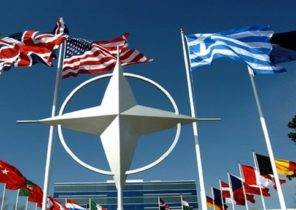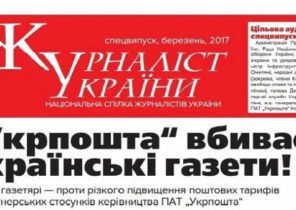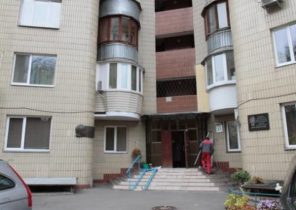No chance for a speedy exit from the crisis, Saudi Arabia is more likely to gradually increase oil production in tandem with Russia, in the hope to gradually restore and expand its market share, is a proven method of reducing production to raise prices. A gradual rollback of the current cuts in production within OPEC+ will require coordination.
The depth of the austerity measures announced in Saudi Arabia on 10 may, indicating its doubts that OPEC+ will keep prices at a comfortable level when the market recovers.
- The Minister of Finance of Saudi Arabia Mohammed al-Jadaan does not mention that some austerity measures will be phased out with the end of the covid-19. On the contrary, he spoke of the long sacrifice, emphasizing that, in the opinion of Riyadh, the recovery of the world oil market to the previous price level on a sustainable basis is not guaranteed.
- This is a serious contrast to the confident tone of Saudi Arabia that prevailed in its public statements up until mid-2019 when it became clear that the production of competitors outside OPEC threatens to drop the minimum price for Brent crude below $ 60 per barrel.
- A big part of 2018 Saudi officials insisted that the price per barrel of Brent in the area of $ 70 and above hold out for a long time. But over all the fact that the economy of the Kingdom caught in the cycle of boom and bust, and the price dropped to $ 50 before the outbreak covid-19.
Sooner or later Saudi Arabia will have to choose: increase oil production or try to increase the price. The time for decision is unlikely to come in 2020, but wave is possible in 2021, mainly it depends on how quickly demand recovers.
- The production cuts OPEC + and the initial decline in US production by 1.5 million barrels a day — faster than expected — led to some relief in the market. But the moment for decision the closer, the sooner oil prices will recover to a level where the drilling operations in the U.S. and investment decisions on deepwater offshore projects will start to grow again — perhaps next year.
- Saudi Arabia realized that the stubborn attempts to raise prices to run a cycle of UPS and downs for competitors ‘ products outside of OPEC, counterproductive and schists are not limited. Large offshore projects in Norway, Guyana and Brazil, approved in early 2017 under the original deal with OPEC+ only exacerbate the current surplus. Thus, production in Norway has increased by about 10% compared to last year due to field Johan Sverdrup — even though she for some time has reduced oil production by 200 thousand barrels per day.
- Maintaining prices below $ 55 dollars for 2021 carries additional benefits in the form of a further decline in production in the United States — largely it is due to the closing of wells. And even if some of them will resume, without drilling new wells by the end of 2021 the maximum decline in US production will reach about 4 million barrels per day.
Russia’s desire sooner or later to regain its market share will further alienate Saudi Arabia trying to force the world price of large coal.
- After the OPEC meeting+ may 6, Russia has made it clear that the current cuts going to stick, although the Minister of energy of Russia Alexander Novak has repeatedly stated that the timing of gradual reduction of the production can be flexible.
- It is expected that Russia and other OPEC members+ next meeting of the group on 9 June will reduce the magnitude of the current reduction in oil production from 9.7 million barrels per day to 8 million barrels per day. But there is a risk that this step participants can postpone because of fears that the resumption of the economy will be minimized because of the second wave of the epidemic covid – 19, especially in the United States and China.
- However, in the long term, Russia wants to regain its market share in the price range of the budgeted $ 45 to $ 55. Moscow does not want to press to quickly return to “normal” level, when faced with a cycle of UPS and downs in 2017-2019. This approach will inevitably reduce the incentive for Saudi Arabia to abide by the OPEC agreement+ and stick to lower production.
Epidemic covid-19 has undermined world oil demand, and Saudi Arabia gradually realizes that she will have to adapt their costs in the oil market, and not Vice versa.
Market share — the only consolation for Saudi Arabia. Large volumes will increase its revenues, though not to the levels of 2017-2019 years.
- Given the announced in early may an additional voluntary reduction of up to 7.5 million barrels per day, relatively recent production volumes to 12 million barrels in Riyadh already has a daily reserve of 4.5 million barrels, and return to the system of joint Saudi-Kuwaiti oil fields in the “neutral zone” — even more.
- In 2017-2019 Saudi mining generally did not exceed 9 million barrels per day. But as production in the US was severely damaged, and 2023 is likely to begin a long break in the cost of developing deepwater fields, Riyadh will have the opportunity to significantly increase oil production.
This is not the scenario of the “price war”, but rather a repetition of the situation of the late 1980’s and early 1990’s, when Saudi Arabia abandoned its role of compensating the manufacturer and recognized that there is a high price balance in the range of 15-25 dollars per barrel.
- During this time, Riyadh is gradually increased in capacity, firmly signaling to the market that will not allow the prices to reach the level in which unforeseeable variations in other places. And yet the Kingdom was left with a debt that it was difficult to imagine, if the prices in the 2000s has not increased.
- This time the strategy of the Saudi market share strategy will inhibit the growth of competing proposals, but the jump in demand, which would improve the situation, not expected.
The challenge for Saudi Arabia will be to in a coordinated way to roll back OPEC cuts+, thus preventing excessive production by other countries with rich reserves, including Russia and Iraq.
- Russia, in turn, also will try that Saudi production is not galloped forward, because it threatens to increase the influence of Riyadh, given its much higher reserve capacity.
- Similarly, in Iraq, too, will have an incentive to seek a rollback of the cuts, as Saudi Arabia will be in a better position to punish “cheaters”.







